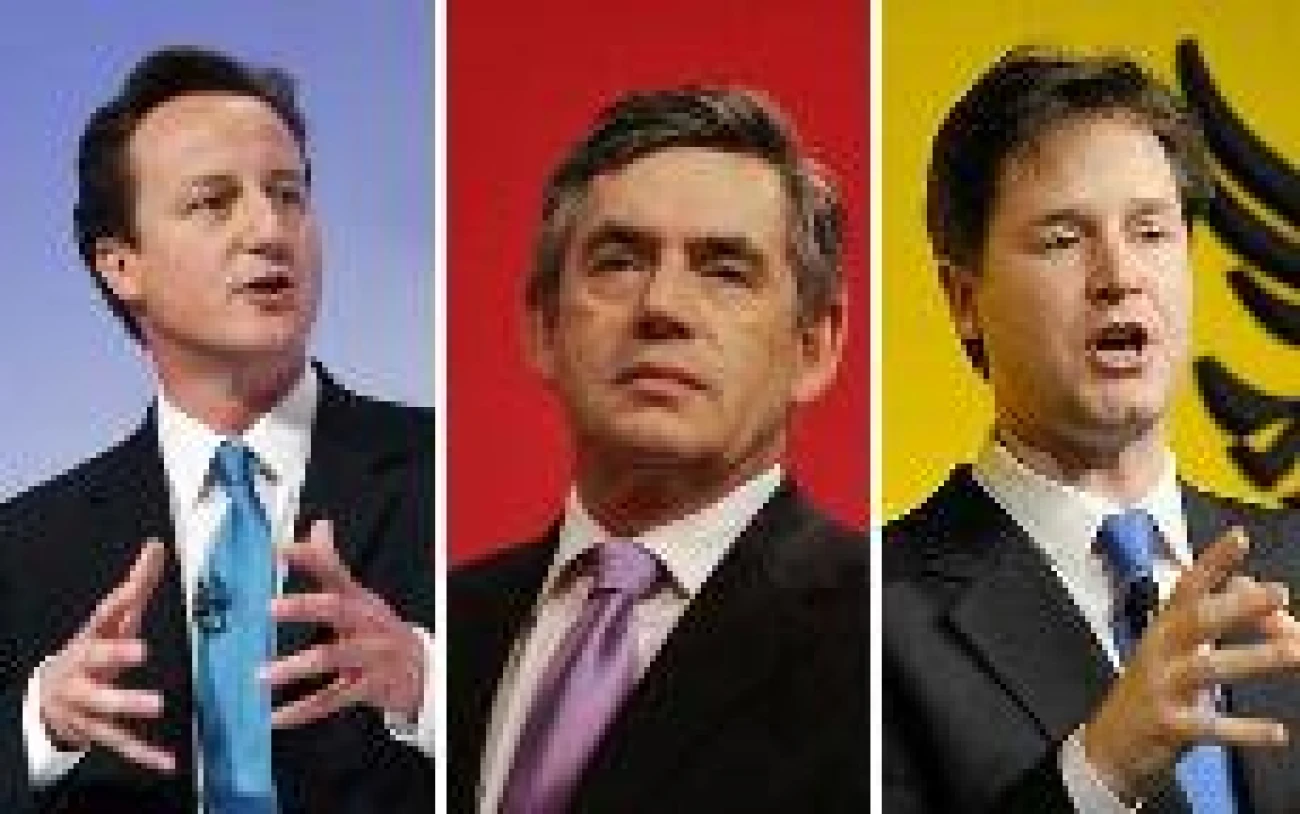Religious vote could decide the election

Voters with a religious faith could determine the outcome of the general election, according to a new poll published by Theos, the public theology think tank. The research undertaken by Theos, in conjunction with the polling company ComRes, revealed that voters with a religious faith commitment could determine the outcome of the general election, widely expected to be on 6 May. The latest snapshot of the state of the parties put the Conservatives on 38%, Labour on 30% and the Lib Dems on 20%. However, there were some striking differences among people with a religious faith. Despite the government's support of the Iraq war and a stack of 'anti-terror' legislation, 57% of Muslims intend to vote Labour. Only 18% plan to vote Conservative. In a close election, the Muslim vote could be critical for Gordon Brown's prospects. The problem for the government, however, is that only 32% of Muslims are 'absolutely certain' to vote - well below the national average of 47%. In relation to the Conservatives, support amongst people of 'no religion' has increased sharply since the 2005 election (up from 21% to 34%) but amongst Christians it has only increased by a modest 2% to 40%. However, David Cameron can be encouraged by the fact that 48% of self-identified Christians are 'absolutely certain' to vote, a figure which rises to 61% amongst those Christians who claim that their faith is 'very important' to their lives.
The research also reveals that one-third of people (32%) believe that religious freedoms have been restricted in Britain over the last 10 years, compared with 59% who disagree. However, both Muslims and strong Christians take a different view. 51% of Christians who say their faith is very important to their lives and 53% of Muslims believe that religious freedoms have been restricted over the past 10 years. In the light of recent comments by the Pope regarding the UK’s equality laws, it is notable that two thirds (64%) of people believe that he and other religious leaders have a responsibility to speak out on political issues they are concerned about, compared with only 30% who disagree. 63% disagree that the law should prevent people from expressing their religious views in the work place. The poll also shows a gender divide in attitudes towards religion with women less likely than men to say their religious beliefs do not really influence their life (40% - 53%).
Commenting on the research, Director of Theos Paul Woolley said: "The result of the election looks too close to call. We're in hung parliament territory. "The balance of support among the different faith groups shows that the Conservatives cannot afford to lose the current support they have among Christians. Labour is in a position where it could benefit from reaching out especially to Christians.
"The problem for Labour is that the people most likely to support Labour are also the least likely to vote. Muslims are most likely to vote Labour (57%) but only 32% of Muslims are 'absolutely certain' to vote, compared with 47% of the population as a whole. "The UK isn't like the United States, but the religious vote is going to be a critical factor in determining who gets into Number 10 – especially when it comes to appealing to female voters."